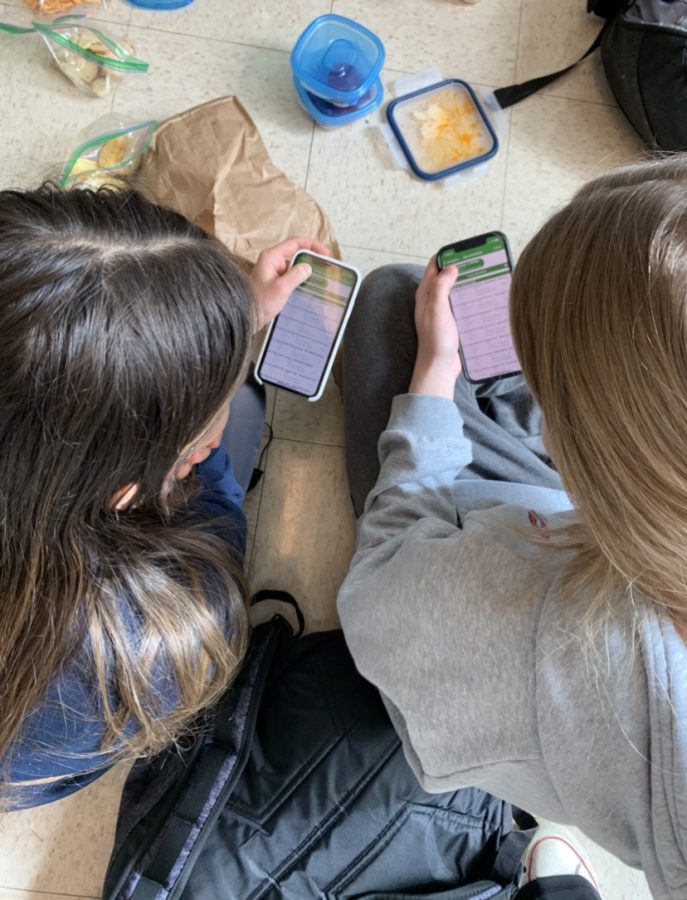Is the second semester schedule change appreciated?
Sophomore Alexa Vinner compares new classes with sophomore Lindsey McNey during lunch to spot any similarities. The second semester schedule change caused students to wonder which new classes they shared with friends. “I was disappointed to find out I still don’t have any classes with Lindsey,” Vinner said.
When the last week of the first semester arrives, students rush to Synergy to check their new class schedule and see if they spot any common classes with their friends.
As students approach the end of the second quarter, they look forward to – or dread – the upcoming reset of their schedule. The halfway mark of the school year comes faster than anticipated, and can be a refreshing new beginning. New teachers and new periods mean new opportunities to perform well in classes. It can also be a sorrowful ending to a successful routine and already-built bonds.
A dramatic schedule change can deteriorate the momentum students have built up throughout the first semester. “When I realized I had no classes with my friends and got switched out of classes with teachers I liked, I got upset about my new schedule, ” sophomore Lindsey McNey said.
Factors that may be disregarded with a dramatic change include bonds built with teachers and friends, an established routine for schoolwork, and familiar expectations for each class. “Carrying out routine activities reduces stress by making the situation appear more controllable and predictable,” said Indumathi Bendi, M.D., a primary care physician at Piedmont.
When students have achieved a routine, it can help their time management, therefore lowering stress levels while simultaneously providing the comfort of habit. “Now I have to stay up late to finish my chemistry homework for first period since I can’t do it during advisory anymore,” sophomore Daniel Son said.
On the other hand, the switch brings positive aspects to student’s schedules as well. “I’m happy that my math teacher was switched because I had trouble understanding my first semester teacher’s style of teaching,” freshman Thomas Mehler said.
Students get an opportunity to experience learning from different people, which helps filter out which learning strategies work best for them. It can result in a newfound love for unexpected subjects. “I also never would’ve found out I enjoy history as much as I do now if I hadn’t switched teachers,” Son said.
Not only does the schedule change switch teachers, but it also changes class periods. “I had math first period last semester and sometimes I was too tired to be able to focus. Now that I have lunch right before math I always feel energized and ready to learn,” junior Nick Kim said.
Though there is a chance students have to leave classes with classmates they have bonded with, they also get the chance to befriend new classmates and move into spaces where they feel comfortable with the company. “I guess I do appreciate that I get the chance to make new friends in my new classes as well as switch into classes with friends,” McNey said.
The debate over whether or not a second semester schedule change is efficient is ongoing. Students are split on their opinions, a handful preferring a change in setting, while others enjoy a secure routine. As of now, the change is an inevitable occurrence that students can expect and prepare for.
Your donation will support the student journalists of Thomas S. Wootton High School. Your contribution will allow us to purchase equipment and cover our annual website hosting costs.







